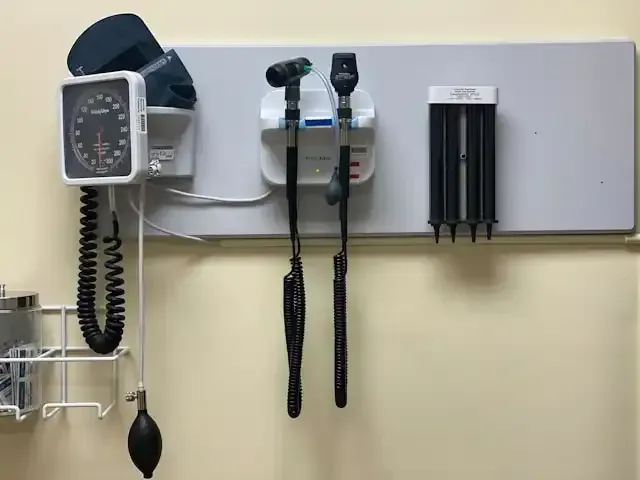Top Five Questions in ERISA Short Term Disability and Long Term Disability Insurance Claims
Top Five Questions in ERISA Short Term Disability and Long Term Disability Insurance Claims
- My doctors and I know that my conditions are real. How can the insurance company deny my claim?
Statements from you and your doctors are key to a successful short term disability (STD) or long term disability (LTD) claim. But there are some other factors that affect an insurers decision. The first is the insurers interest in staying profitable. Because of this, they are selective with the cases that they approve and with cases that they continue to pay benefits on. While a denial can seem personal especially in a conversation over the phone there is typically something else motivating the decision.
A second reason that insurers deny STD and LTD claims is due to specific requirements in disability insurance policies. If you have looked at your own policy, you will find dozens of pages of dry of seemingly redundant legal language. Unfortunately, this boring legalese explains the kinds of evidence that the insurer can require, as well as the limits on benefits that the insurer can apply to your claim.
For example, STD and LTD policies are strict in requiring objective evidence of work limitations (as opposed to the conditions themselves). Subjective complaints are not enough. This is particularly true of Sedgwick CMS (typically used by Wal-Mart and AT&T) and MetLife (used, for example, by Bank of America and previously by Verizon).
- My doctors and I have sent documents and medical evidence to my insurance company. Why are they saying that they didnt receive them?
Its hard to know exactly why insurers say that they did not receive documents. Whether its by accident or instead by not-so-innocent behavior, the only way to avoid this problem is to confirm that the insurer received the documents that were sent for your claim. This means sending the documents through certified mail (or in a form that requires a signature and receipt), fax, and/or e-mail. We suggest that you save the receipt, fax confirmation, and the sent e-mail. It is also worth saving your own copies of everything that you sent along with the letter, fax, or e-mail. These can help you if there is later a problem, and they can prevent accidental mistakes from happening in the first place.
If it is impossible to send your STD or LTD documents in those ways, you can follow up with the insurer to let them know what you sent. Request a return call if they have not received your documents by a certain date. Make notes of the conversation, the name of the person with whom you spoke, and what you need to do next. Although these conversations are often said to be automatically recorded, it is rare for recordings to actually be available. And, unfortunately, sometimes the insurers own internal notes are either inaccurate or missing altogether which is one of the reasons why written confirmations and receipts are so important. The law is not kind to those who have only oral evidence of something that a representative said.
- How long does it take before I will receive benefits?
The length of time involved depends on where your claim is in the process. It also depends upon the quantity of medical evidence involved, as well as the particular insurer that is administering your claim. There are several other factors that can further affect the speed of the process.
If you are already awaiting a decision (whether it be after just submitting your initial application or after submitting an appeal), the insurer should provide you with an estimate of its decision date. However, an estimate of its decision date is just that: an estimate. Although the law requires insurance companies to administer claims according to certain deadlines, they are also allowed to extend the deadlines when they find it necessary. The law that governs most STD and LTD claims (ERISA) favors insurers, especially when it comes to allowing them time and discretion.
Having said that, most claims are decided within a few months of all evidence being submitted to the insurer. In complex or unusual claims, this may extend into several months. Wherever you are in the process, watch for the insurers letters with its decision date estimates and requests for information. Likewise, request status updates if weeks have passed without any communication from the insurer. Again, where possible, do this in writing and keep confirmation that you requested updates.
- Will the insurance company continue to try to deny or terminate my claim even after I am receiving disability benefits?
Yes. It is normal for insurers to regularly review STD and LTD claims. Insurers review STD claims at frequent intervals (every several weeks, for example). LTD reviews are less frequent, but they still occur on a regular basis (every three months, six months, or 12 months).
In its review process, the insurer will request updated medical records and physician statements. If the insurer does not believe that the evidence continues to support the STD or LTD claim, it will terminate benefits. At that point, it is important to determine whether all of the relevant medical evidence made it to the insurer and why the insurer found that it did not support the claim.
Because these endless reviews often cause anxiety and frustration, the process can be very upsetting and tiresome. Depending on the particular facts and circumstances in the claim, it is worth considering alternative approaches to simply providing updated medical records particularly if the insurer has denied or suggested that it will deny the claim.
- The insurance company is reducing or offsetting my benefits. Is it allowed to do this?
In most cases, an insurer is allowed to reduce or offset STD or LTD benefits by income received from certain other sources. The most common reduction or offset is for Social Security disability income. This is true even in claims where the insurer is not required to follow the Social Security disability decision. In this sense, the insurer can have its cake and eat it too. Whats more, the insurer will try to recoup what it calls overpayments. In this situation, the insurer will demand the return of STD or LTD benefits that were paid at the full rate (before Social Security disability approval). The insurer is usually able to do this if the Social Security Administration made a payment for back due disability benefits.
Other common types of offsets and reductions that insurers apply are for workers compensation benefits, Veterans Administration disability benefits, and retirement income. Because the insurer can use multiple sources, it can sometimes reduce STD or LTD benefits to a very small amount. For this reason, it is important to understand in advance what the insurers policy states about offsets.
Although Social Security disability decisions and VA decisions are relevant sources of evidence to an insurer, they do not guarantee that the insurer will approve and continue to pay your STD or LTD claim. There are two main reasons for this. The first reason is that most STD and LTD policies state that Social Security disability decisions do not control the outcome of STD and LTD claims. Instead, the insurer alone gets to the decide how important that decision is to an STD or LTD claim.
The second reason that insurers are not required to approve a claim based on Social Security disability approval is that the Social Security disability rules and definitions are different from the rules that the insurers follow. This is especially true in STD and LTD claims involving people who are at least 50 years old. Social Security disability rules are more forgiving to this age group than the rules that the insurers use.
For more information about these common questions and many others, please contact our office.
Recent Posts





